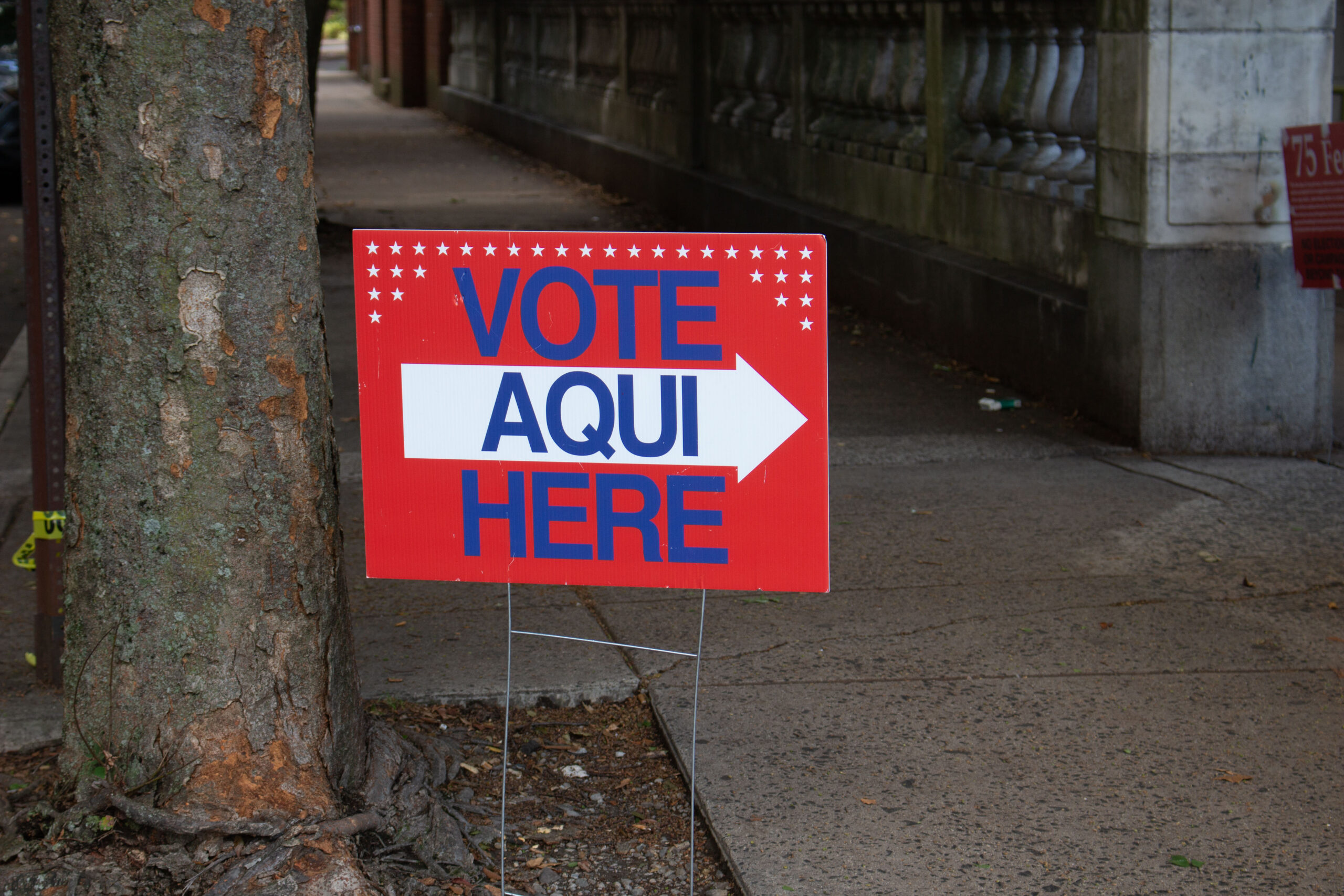Local activists mobilize immigrant communities ahead of election
The Asian Pacific American Coalition of Connecticut and Unidad Latina en Acción are mobilizing members of their communities to vote this coming November — and extend their political engagement beyond the general election.

Collyn Robinson, Senior Photographer
With election day less than a month away, advocacy groups in New Haven are determined to have their communities’ voices heard.
The Asian Pacific American Coalition of Connecticut and Unidad Latina en Acción are both working to register voters and increase political engagement within their respective communities — APAC through a goal of registering over 1,000 new Asian American and Pacific Islander voters by election day and ULA by encouraging young Latino voters to become active in the political process.
According to Corona Zhang, APAC’s Let’s Vote Community Organizer, the AAPI community has some of the lowest voter participation rates in the nation. She cited lack of information about candidates, intensity of elections and poor accessibility to explain the disengagement.
“In order to strengthen our communities, we need to understand how important it is to get out there and vote,” Zhang said.
Jennifer Heikkila Díaz, co-chair of APAC, said that to meet their 1,000 voter goal, the organization has been tabling all over Connecticut and participating in local community events. APAC has targeted naturalization ceremonies in Hartford, New Haven and Bridgeport for several months, Díaz said. But the voter initiative is not just limited to this election cycle. APAC plans to continue this initiative for future election cycles.
APAC has also championed the accessibility of voting resources for the AAPI community. This includes translating voter registration materials into the top 10 most frequently used Asian languages in Connecticut — from Vietnamese to Mandarin to Nepali.
John Jairo Lugo, community organizing director of ULA, wants to show politicians that the Latino community is ready to vote. By encouraging the Latino community to vote, politicians are more likely to support the interests of the community, Lugo said.
Lugo doesn’t want ULA members to stop at voting, however. “We can’t expect a winning politician to do the right thing for us,” Lugo said. Forceful public activism also prompts politicians to start paying attention to issues important to marginalized communities, supplementing the power of the ballot box.
Díaz echoed the sentiment. As more people in the community become politically engaged, there is more representation of diverse communities in political discourse. They further criticized the harmful tendency to treat immigrant communities as a monolith.
“The more diversity of perspectives, the more we can ensure that no one is being marginalized or left out of the conversation,” they said.
There was a consensus between the organizations that immigration is one of the key issues this election cycle.
Lugo noted that the United States “has always been an immigrant country, and we [Latinos] are just a new wave of immigrants.” He said he believes politicians are utilizing the current migrant wave to stir emotions among the electorate to their advantage, negatively skewing perception of the Latino community in the process.
For Zhang, the recent presidential elections have attempted to exacerbate racial divides. However, she said that members of the AAPI community have expressed to her that they would rather find a way forward — united — rather than participate in divisiveness.
Díaz said that with a growing population of multilingual and multicultural groups in Connecticut, the focus should instead be on providing opportunities for these groups to allow them to thrive.
Regardless of partisan issues, both organizations remain committed to voting advocacy as a means to push political discourse to include the needs of immigrant communities.
Election day is Nov. 5, 2024.







